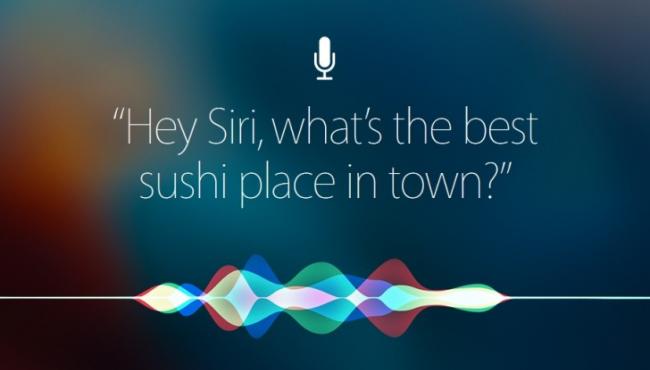
Google, Amazon, Facebook and Apple (GAFA) are acquiring marketing tech startups or researching new ideas in order to boost their AI capabilities and to expand their market presence in this burgeoning sector. Let us see how they study, use and integrate this to qualify and interact with their customers.
Google started to use emotional advertising during Super Bowl in 2012 to engage consumers to not only useful tools but to connect with them on a more personal level. Advertisements were aired and mega events were held for this purpose. It’s not just emotions they used, they relied on data to help them make their decisions on which platform to advertise their message, and even analysed hundreds of spreadsheets before settling on a location to hold their public event.
In 2016, Google acquired DeepMind, a London-based tech startup with an ambition « to solve intelligence and then to use that to solve everything else. » Although experiencing a breach of privacy law in mid 2017, DeepMind continues to develop new AI applications that recognise eye diseases from a digital scan of the eye to a Android phone feature predicting the choice of apps to boost battery performance.
Google is also researching on how emotional marketing can help B2B companies and discovered that, “On average, B2B customers are significantly more emotionally connected to their vendors and service providers than consumers.” It is due to the risk that a bad purchase for a company could have implications much bigger than a personal one. A B2B customer does not buy only for himself but for the whole company. That’s why it is important for him to have strong emotional affection and trust in the company.

All this research in “humanising” AI with the analysis of text, voice, images and other sensors, leads to making better products, like Google Duplex, an AI assistant like Google Assistant but makes appointments for you, or create symphonies like Bach with Doodle, an interactive experience that encourages players to compose melodies of their choice.
Amazon
Known for using artificial intelligence to upsell, cross-sell, propose their products and engage customers in before, during and after sales customer relationship building. Amazon appeals to our modern day consumerism. They understand that consumption patterns has formed our buying habits and that we want it now. Free shipping, next day delivery are some of the features introduced by Amazon that has shaped the industry’s best practices by now.

In 2017, the e-commerce giant opened its first AI powered convenience store in Seattle called Amazon Go. Fitted with cashless check out systems, you can enter the store by scanning a personalized QR code in the app, take your purchases off the shelves and walk out the store. The app’s deep learning algorithm as well as image recognition software, will automatically add the items purchased into your Amazon account. Sounds simple isn’t it? I wonder though how accurate and robust is the AI system, is it worth a trip to Seattle to find out?
Of course, not forgetting Alexa, Amazon’s latest AI trophy, that uses neural networks to power natural language processing that analyses the human voice and returns an appropriate response, we see that the company is forging its way strongly into this new technological landscape.
With an average of 1.45 billion daily active users, from CEOs, to students, to companies, Facebook as a technology platform relies on AI to constantly improve their offerings. Its algorithm plays a huge part in the contents we actually get to view in Facebook and Instagram and in Messenger, the type of advertising we are served.

In 2017, the tech company revealed that they are formulating a patent to capture users’ facial expressions in order to serve them related contents according to their emotional state. By using “passive imaging data”, images captured by the laptop computer or a smartphone’s front facing camera, which by the way is captured without our knowledge, an API senses our emotions for Facebook to serve contents that they have preselected beforehand.
Apple
Among the top 10 global brands, which include the other 3 brands mentioned above, Apple forms the closest emotional connection with its consumers around the world. We are all under its influence on way or another, whether we are aware of it consciously or not. Its ability to make technology simple, sexy and relatable makes it undoubtedly one of the most powerful brands in the world.

For long, Apple has been using a wide range of AI applications for a number of functions from identifying fraud in the App Store to optimizing Apple devices’ battery usage. Like Amazon and Google, Apple has its own intelligent assistant, Siri which offers a faster, easier way to get things done on your Apple devices. In order to catch up with its competitors, Apple has hired Google’s chief of search and AI, John Giannandrea, to run its machine learning and AI strategy. It also invested in many AI startups, like Affective, which produces facial recognition technology to detect customers reaction to ads, Silk Labs, which makes AI software to fit in consumer devices and Vocal IQ, the world’s first self-learning dialogue API, which uses natural conversations between humans and devices to learn and better understand future requests, with some experts analysing that the purpose of this acquisition is to improve Siri.
Conclusion
With eye tracking, connected devices, intelligent assistants like Alexa, Google Assistant or Siri, and facial coding, the neuromarketing is changing the way we collect and qualify everyday data to become emotional data. From physical store to e-retailer, GAFA understands the importance of these tools and research, and invest massively in them to really understand how people buy, sell or react to a product or a brand.
With the studies of the link between consumer emotions and products, they not only improve their bottom line, but also their tools and the way they create new systems. After UX, emotional marketing is the new step to increase the impact of a brand on its client, a new key to understand prospective reactions and target them more precisely. In a world where ads are everywhere, it has become complicated to stand out from competitors. GAFA understands that and uses emotional marketing as one way for them to “humanise” their product, their technology, and increase their links with consumers to becoming more consumer-centric.
Resource
https://gomedici.com/gafa-ai-is-the-future/
https://www.thinkwithgoogle.com/marketing-resources/promotion-emotion-b2b/
Google Duplex : https://www.youtube.com/watch?v=D5VN56jQMWM
Bach Doodle : https://youtu.be/XBfYPp6KF2g
Amazon Go : https://www.youtube.com/watch?v=NrmMk1Myrxc
https://www.cbinsights.com/research/facebook-emotion-patents-analysis/

